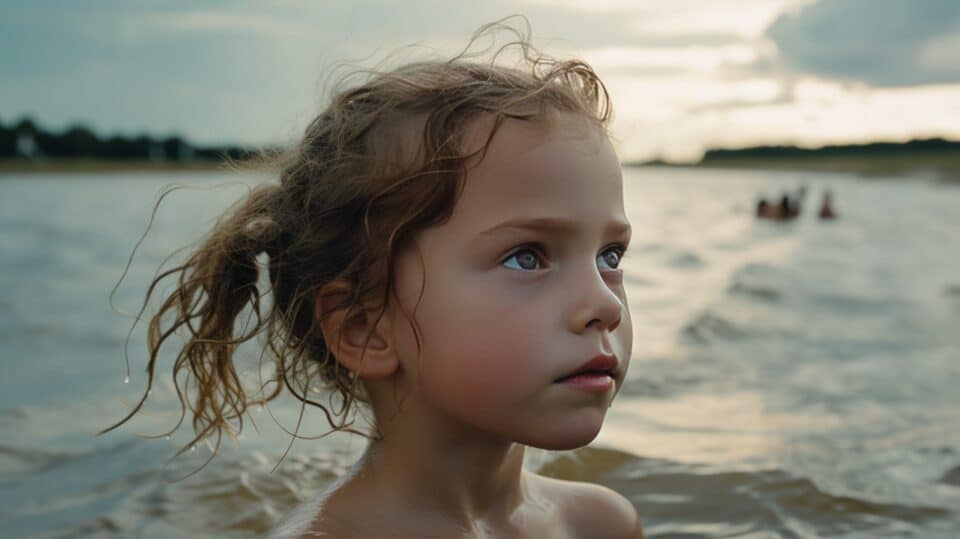As summer approaches, our focus naturally shifts to outdoor activities, live performances, and travel adventures. But amidst all the excitement, it’s crucial not to overlook the well-being of our ears. To shed light on this important topic, we had the privilege of interviewing Bria Collins, Associate Director of Audiology Practices, at the American Speech-Language-Hearing Association (ASHA).
With her expertise, Bria shares valuable insights on the significance of ear protection during summer activities, practical tips for preserving our hearing at concerts and festivals, preventing swimmer’s ear, alleviating airplane ear discomfort, monitoring noise levels, and dispelling common misconceptions about earwax. Join us as we explore the art of men’s style while prioritizing ear health and safety with Bria Collins from ASHA.

Q&A with Bria Collins from ASHA
Crystal Green: Many people are aware of the importance of protecting their skin from the sun’s harmful rays, but ear protection is often overlooked. Could you share with us why it’s crucial to keep the safety of our ears top of mind during summer activities?
Bria Collins: It’s crucial to protect our ears year-round, but we are reminding people at the start of summer about ear care and hearing protection because the season poses some frequent dangers. Some of our favorite summer pastimes—such as attending a fireworks display (or throwing firecrackers) on the Fourth of July or attending a concert or festival—can reach levels of noise well beyond the safe level for our hearing. A safe listening level is generally 75-80 decibels, and those activities can reach 110 to even 150 decibels. The louder the noise, the less time it takes to damage our hearing. In extreme cases, impulse noise (a single loud blast or explosion that lasts for less than 1 second) can result in instantaneous hearing loss for life. But the key message we want to send is that this is preventable. If you’re attending a fireworks display or other loud event, adults should wear earplugs, and children should wear well-fitting earmuffs. You always want to stand far away from noise sources (e.g., a fireworks launch site), and visit your doctor immediately if you are having trouble hearing or experiencing ringing in your ears the next day.
Attending concerts and festivals is a popular summer pastime, but it can take a toll on our hearing. What are some simple yet effective ways for music lovers to protect their ears without compromising their enjoyment of live performances?
These are very similar to those shared above. Wear earplugs or earmuffs. If you attend concerts frequently, invest in a pair of custom musician’s earplugs. Musician’s plugs have special filters to help preserve musical sound quality, while also protecting the ears. You can purchase these online or an audiologist can custom-fit them for you.
Sound energy is measured in decibels (dB) and the further you stand from the source of the loud sounds, the less dB exposure will be once the sounds reach your ears. In short, stand far away from noise sources such as the stage or speakers. Additionally, pay attention to your body’s cues—if you have pain or ringing in your ear, leave the concert or event. And finally, take listening breaks every hour. Just by stepping away from the loud noise and into a quiet space regularly, you are giving your ears a healthy break.
We often see parents using earplugs for themselves, but what options are available for children to protect their ears during noisy events? Are there any creative and kid-friendly alternatives to traditional earplugs?
For infants and younger children, we advise that parents and caregivers purchase well-fitting earmuffs. These are available in many different sizes and fun colors. They provide better hearing protection and are more comfortable for kids than earplugs. It’s so important to protect little ears, as hearing loss can affect a child’s speech and language development, academic and social success, and even behavior when left untreated.
Swimming is a favorite activity during summer, but it can lead to swimmer’s ear. What are some practical tips to prevent swimmer’s ear and keep our ears healthy while enjoying time in the water?
Swimmer’s ear usually doesn’t result in lasting damage, but it can be uncomfortable and frustrating when it recurs. It’s most common in children but some adults get swimmer’s ear as well. Some tips to help prevent infection:
- Use a towel to dry both ears well after swimming and bathing.
- Tilt the head to drain water from the ears. Pull on earlobes to straighten out the ear canals and let water out.
- Wear swimmer’s earplugs (especially people who swim a lot and/or are prone to ear problems). An audiologist can make custom molds for children and adults. A swim cap can also help keep ears dry.
Just as a sidenote, custom swimmer’s earplugs can also be used for hearing protection when not swimming, so they have a dual purpose!
Airplane travel can cause discomfort in the ears due to pressure changes. Could you provide some advice on how to alleviate the symptoms of airplane ear and ensure a more comfortable flying experience?
There’s not much that people can do to prevent changes in pressure on an airplane, but simple steps can help alleviate the symptoms and discomfort. For younger children, try the following:
- Encourage them to swallow—provide a drink for them to sip on.
- Have them suck on a pacifier.
- Keep them awake during takeoff and descent, so they can take prevention measures.
For older children and adults, try these strategies:
- Chew gum.
- Yawn, and swallow.
- Use Earplanes® or other travel earplugs.
- Stay awake during takeoff and descent.
If you or your child have upcoming air travel scheduled and have concerns regarding experiences of sinus or ear congestion, it would be wise to consult with a physician prior to travel.
We live in a world filled with noise, from construction sites to busy city streets. How can individuals determine if their environment is too noisy and potentially harmful to their hearing? Are there any technological advancements that can help us monitor noise levels effectively?
Absolutely! Sound meter apps are available for smartphones and other devices, and many of these apps are free. These allow you to measure the sound level in a particular environment, letting you know if it’s too loud. They aren’t always 100% accurate, but they give people a good idea of their noise exposure. Now, many smartphones and smartwatches also send push notifications if someone is in a noisy environment that is potentially damaging to their hearing. Heed these warnings! Make sure to keep them turned on in your phone or device settings.
The use of cotton swabs to clean ears is a common practice, but it can lead to injuries and infections. Could you explain why it’s best to avoid putting anything in our ears and how earwax plays a role in protecting our ears?
Well, audiologists generally say nothing smaller than your elbow should go into your ear. Earwax gets a bad rap, but it actually lubricates the ear canal and helps prevent foreign objects (such as dust, dirt, or even a bug) from reaching the eardrum. Earwax can help prevent infection in the ear canals and keeps the skin in the ear canals moist so they don’t become dry and itchy.
That being said, excessive earwax can build up and block sound coming into the ear. Too much earwax may cause difficulty hearing, dizziness, a feeling of fullness or pressure, and/or ringing in your ears (known as tinnitus). An audiologist may need to remove excess earwax.
Audiologists and other medical professionals strongly discourage home earwax removal tools such as curettes, picks, and ear candles. Incorrect usage of these tools can lead to damage to the ear canal, burns on the skin, and/or punctured eardrums.
To safely clean the ears at home, use a damp washcloth and wash the outer parts of your ear when bathing or showering. Do not put anything small, such as a cotton swab, into your ear canal. Hydrogen peroxide (alone or mixed with warm water) and/or other earwax softening drops, available over the counter, can help with earwax buildup between appointments with your healthcare provider.
For those seeking professional help with their hearing, how can they find a certified audiologist? Are there any resources or directories available to assist individuals in locating the right audiologist for their needs?
ASHA has an online database of certified audiologists nationwide at www.asha.org/profind. You can also ask your doctor for a recommendation for a local audiologist or search your health insurance website. Certified audiologists are everywhere! We work in private practices and ENT offices, in hospitals, in schools and early intervention programs, and even in some workplaces.
Wrapping Up
In the pursuit of a vibrant and fulfilling lifestyle, it’s vital to take care of our auditory well-being. Bria Collins from ASHA has provided us with valuable knowledge and practical advice on protecting our ears during summer activities. By wearing earplugs, earmuffs, or custom musician’s earplugs at concerts and festivals, using swimmer’s earplugs while swimming, adopting effective techniques to alleviate airplane ear, and avoiding harmful practices like inserting cotton swabs into our ears, we can preserve our hearing and enjoy the vibrant sounds of life for years to come. Remember, your ears deserve the same attention and care as the rest of your body, and by following Bria’s expert guidance, you can ensure that your summer adventures are both stylish and safe.
